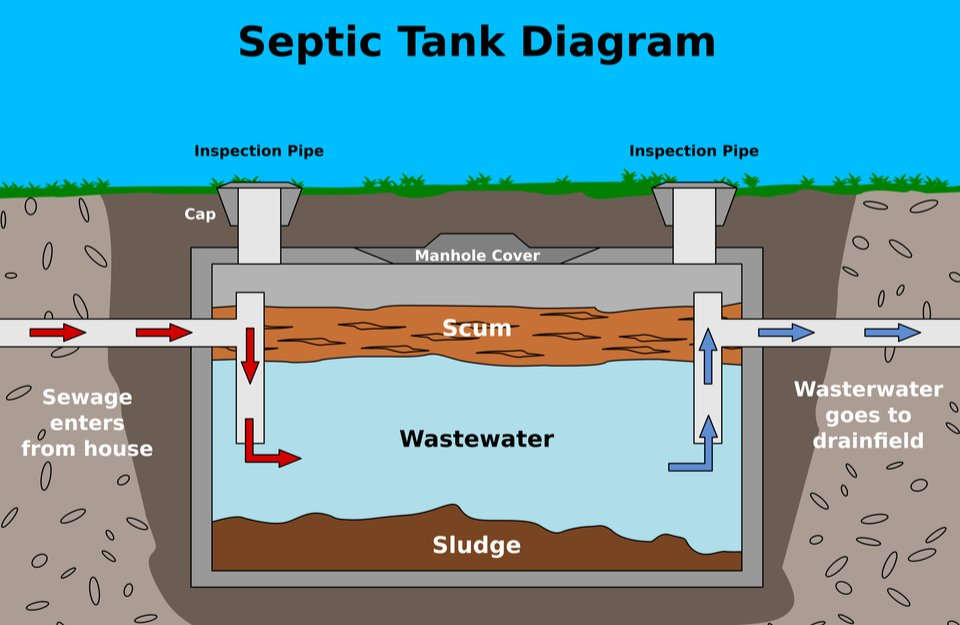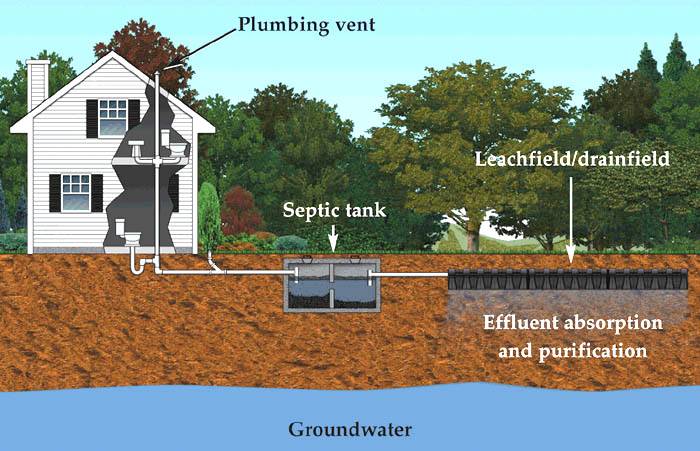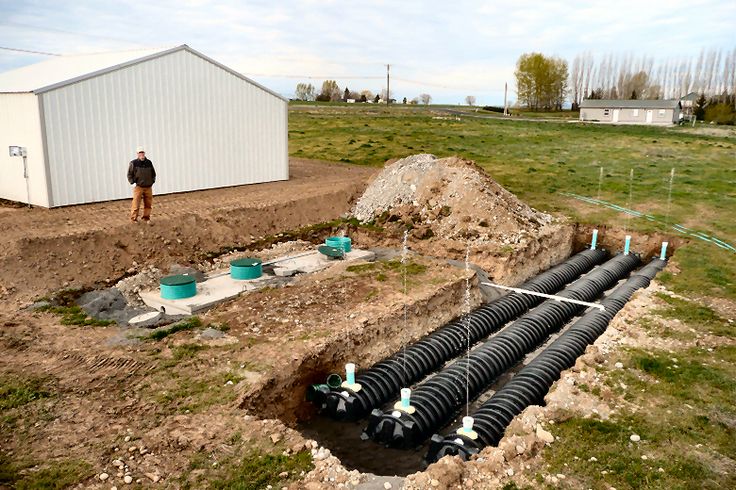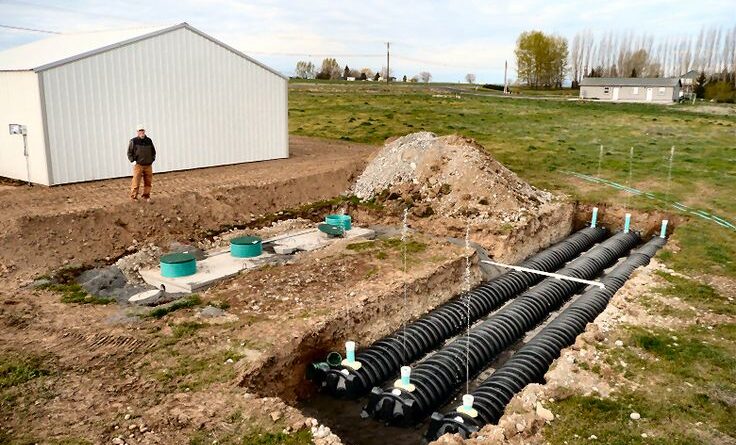While septic systems may not be the most glamorous topic, grasping the inner workings of this essential system is crucial for any homeowner. Today, we embark on a journey to uncover the role of sludge in your septic setup and explore the paramount importance of septic tank pumping.
Picture this: every time you flush the toilet, rinse your dishes, or take a long, relaxing shower, all that wastewater vanishes through your home’s plumbing into the septic tank. This unsung hero of sanitation diligently collects, treats, and processes the sewage from your household, away from sight and mind.
Sludge, a natural byproduct of the decomposition process that occurs in the septic tank, is a thick layer of solid waste that settles at the tank’s bottom. While the tank performs its duty efficiently, it’s not entirely infallible. As this gunky sludge layer thickens, it leaves less room for water to separate from solids properly.
And this is where septic tank pumping comes into play. Regular septic tank pumping is an essential maintenance activity that helps keep your septic system running smoothly and prevents potential disasters from occurring.
Having a professional pump out the sludge at recommended intervals allows your septic tank to breathe again and creates ample space for waste separation and further treatment.
In this comprehensive article, we’ll dive deeper into the fascinating world of septic systems, exploring the science behind sludge buildup, the factors influencing pumping frequency, and the benefits of regular septic tank maintenance. Without further ado, let’s get into it!
The Septic System: Unseen but Essential

source: pinterest.com
In waste management, the septic system is an unsung hero, quietly performing its vital task beneath our feet. While hidden from view, this unassuming system plays a critical role in treating and processing the wastewater generated by our daily activities.
The septic tank is at the heart of the septic system, the crucial component for containing and treating incoming sewage.
Unraveling the Sludge Mystery
To truly comprehend the importance of septic tank pumping, we must first acquaint ourselves with its nemesis – sludge. Septic tank sludge is a thick layer of solid waste that accumulates at the bottom of the tank over time. As household wastewater enters the septic tank, natural decomposition occurs, causing heavier solids to settle at the bottom, forming the infamous sludge layer.
The Impending Dangers of Sludge Buildup
The accumulation of sludge might seem inconsequential at first glance, but neglecting the timely removal of this buildup can lead to many potential disasters. Over time, the sludge thickens and reduces the available space for wastewater storage.
As a result, less water can separate from the solids effectively, leading to an inefficient septic system.
Moreover, if sludge accumulates unchecked, it can reach a point where it clogs essential components within the septic tank. This can cause foul odors to permeate your property, and even worse, toilets and drains may begin to back up, creating an unpleasant and unhygienic mess.
Decoding Septic Tank Pumping

source: pinterest.com
The answer to preventing the dire consequences of sludge buildup lies in septic tank pumping. This essential maintenance activity involves regularly removing the accumulated sludge from the tank. Doing so effectively creates ample space within the tank for proper waste separation and further treatment.
Determining the frequency of septic tank pumping depends on various factors, including the tank’s size, the number of occupants in your household, and the volume of wastewater generated.
As a general rule of thumb, experts recommend pumping every 3 to 5 years to maintain a healthy and functional septic system.
Benefits of Regular Septic Tank Maintenance
Regular septic tank pumping brings an array of benefits that go beyond just avoiding foul odors and backups. By adhering to a consistent pumping schedule, you significantly reduce the likelihood of experiencing septic system failures.
A well-maintained system is more efficient and less prone to unexpected malfunctions, saving you from potentially costly repairs and replacements.
Furthermore, proactive septic tank pumping promotes a cleaner and healthier environment around your property. A malfunctioning septic system could contaminate nearby soil and water sources, posing risks to human health and the ecosystem.
On the other hand, responsible maintenance ensures that your waste is properly contained, treated, and disposed of without causing harm to the environment.
Professional vs. DIY: Making the Right Choice

source: pinterest.com
When it comes to septic tank pumping, choosing between hiring professionals and attempting a do-it-yourself approach is essential.
While DIY projects might seem appealing as a cost-saving measure, septic tank pumping is best left to the hands of trained experts. Professionals have the knowledge, experience, and specialized equipment to perform the task efficiently and safely.
Environmental Impact and Responsible Practices
Responsible septic tank maintenance goes beyond just hiring professionals; it also involves adopting environmentally friendly practices. Proper waste disposal, using septic-safe cleaning products, and conserving water can all contribute to the longevity of your septic system and minimize its impact on the environment.
Conclusion
Comprehending the role of sludge in your septic system and recognizing the importance of regular septic tank pumping is crucial for maintaining a functional and efficient waste management system. Sludge buildup poses significant risks, leading to inefficiencies, foul odors, backups, and potential system failures.
By adhering to recommended pumping frequencies and relying on professional services, you can mitigate these risks and ensure the long-term health of your septic system. Responsible maintenance practices safeguard your property and contribute to environmental preservation by preventing contamination and promoting sustainable waste disposal.
Embracing these measures fosters a cleaner and healthier living environment while fulfilling the proper septic system management responsibility.
So, don’t forget to mark your calendar for regular septic tank pumping and take pride in stewarding your home’s sanitation.





